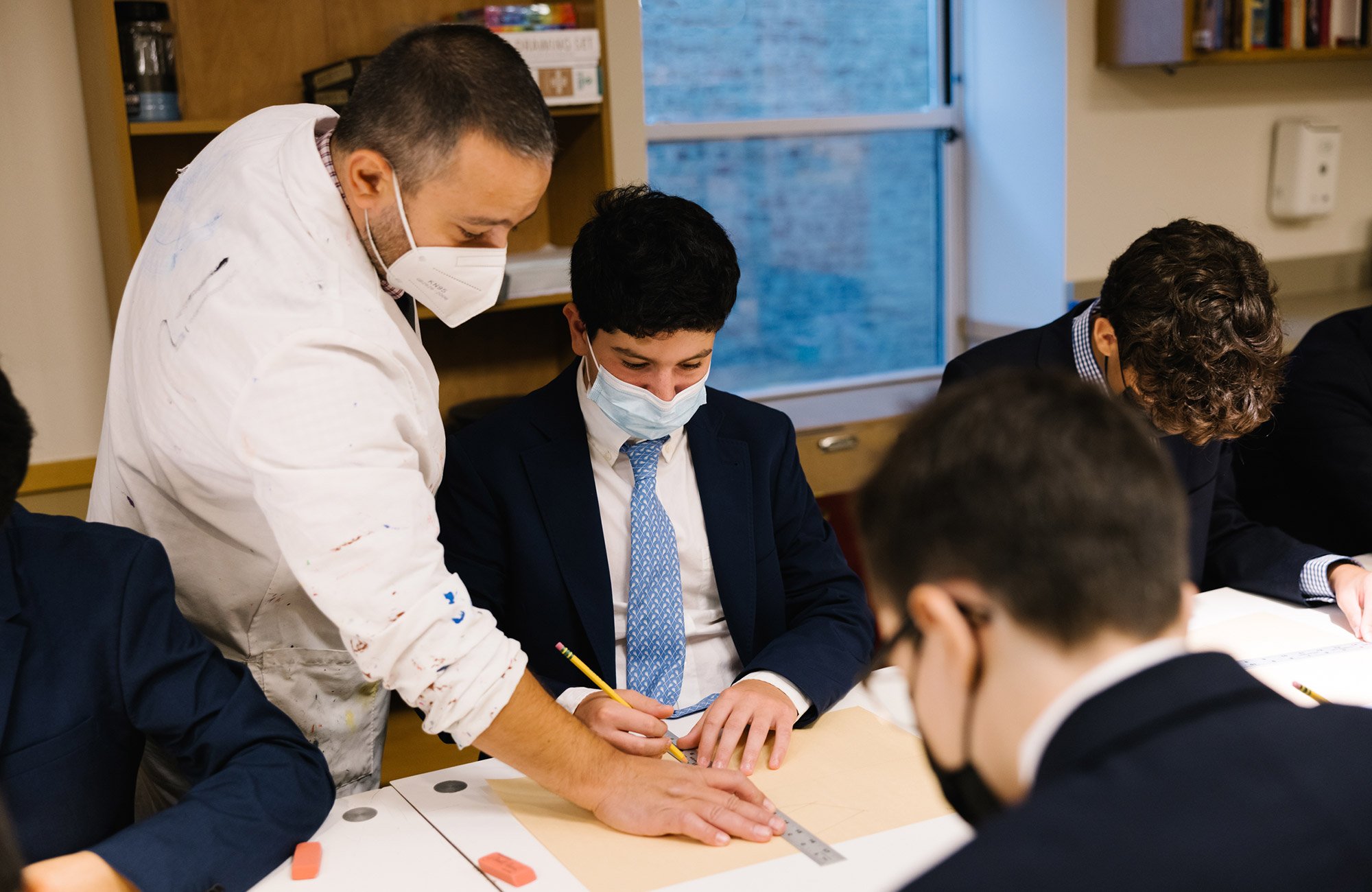A Deeper Dive
Certificates of Distinction program rewards boys' academic passions
January 2022
Browning’s new Certificates of Distinction program gives our students the opportunity to pursue their academic passions, allowing them greater agency over their learning through independent inquiry in disciplines like engineering and the humanities. We spoke to two faculty members— Aaron Grill, Director of Program Innovation, and Anna LaSala-Goettler, English Teacher and Grade 9 Coordinator— who are leading the program respectively in those disciplines, to learn how the Distinction program supports Browning’s philosophy of learning, how online learning helped spur its development, and what excites them about this new initiative.
LaSala-Goettler: During our transition to fully online learning with BrowningConnect in March 2020, we saw that students were excited by the idea of more independent inquiry projects, and we as teachers wanted to support that learning. Certificates of Distinction allow us to amplify our existing academic program with more opportunities for student agency.
Grill: I have students in robotics who are in the lab for 10 hours a week, not because they have a class here or someone is telling them to be here. They were asking for resources to start a robotics program. These kids are working so hard and I thought: What do we want to see come of that? And what purposeful project—like a senior capstone—might be an appropriate culmination of their work?
LaSala-Goettler: Students are writing for the Grytte newspaper, editing the literary magazine—even taking the trip to the Island School has students engaged in the discipline of the humanities. We wanted students to reflect on all of these experiences through the lens of scholarship, and to think about the ways in which they shape an understanding of self. Creating a cumulative project presented to a panel of experts at the end of high school helps give all of this learning a coherent structure.
“Certificates of Distinction allow us to amplify our existing academic program with more opportunities for student agency.”
Grill: Another important part of the program is the relationships that students can form when they are working on a Distinction—with each other, with faculty. As we improve our schedule, it gives them some time and space to do that as well.
LaSala-Goettler: It will also help Browning alumni reconnect. As students do their concluding project, they will present it to a panel. We hope that alumni will serve on these panels, and our students can see the ways in which you can be a Panther for life.
Grade 9 boys engage in independent field research during a weeklong trip to the Island School in The Bahamas.
LaSala-Goettler: Students are invited to participate in the program in the spring of their Grade 9 year through a presentation by the directors of each Distinction program, and that summer is when they are asked to do some work towards it. From the spring of the Grade 9 year through all of their Grade 10 year, the student works to develop and fulfill the requirements of the portfolio, which is the body of work that establishes one’s commitment to the Distinction program. In their Grade 11 year, they will be planning their capstone project. And the senior year will involve working on the project itself. Right now we have an “on ramp” for 10th graders so they can experience the program as well.
Boys on the staff of the Grytte newspaper take charge to run meetings themselves.
Grill: This is perfect for the typically motivated Browning student. It’s for a boy who is going to show agency beyond sitting down in an assigned class. We think this will encourage our students generally to better appreciate the value of grit and motivation.
LaSala-Goettler: As a learning community, we want to better support the student whose passion project lies out- side of the academic space. For example, a visual arts distinction for a student who already spends hours at their own studio every week. Or a student who is writing a novel, since such a pursuit is not connected to English class. That’s the kind of work that we want to support. And having that support would round out a boy’s Browning experience in such a meaningful way. If we see a majority of our students embracing this way of thinking about their education, it has the potential to significantly impact our academic offering.





